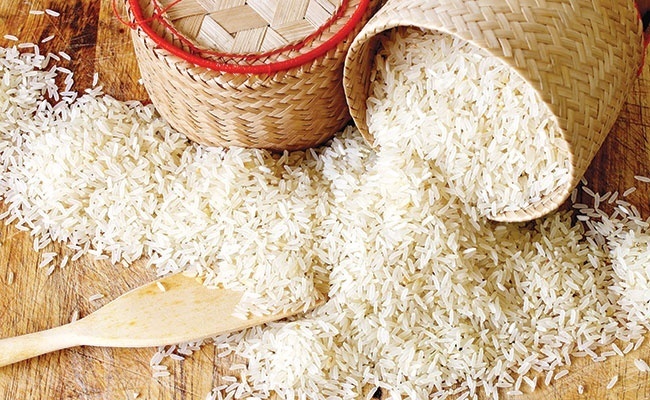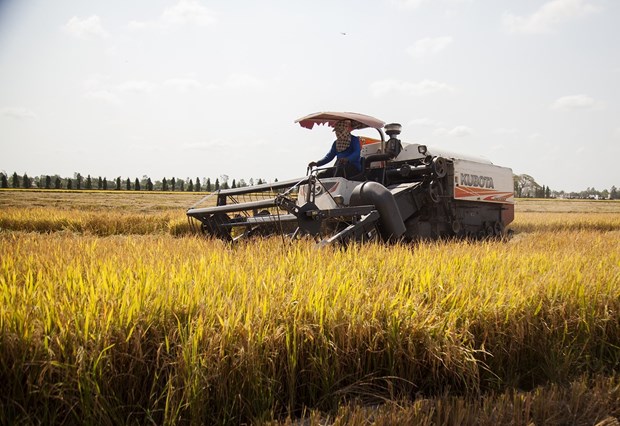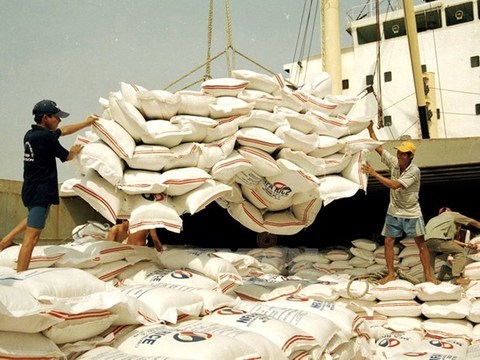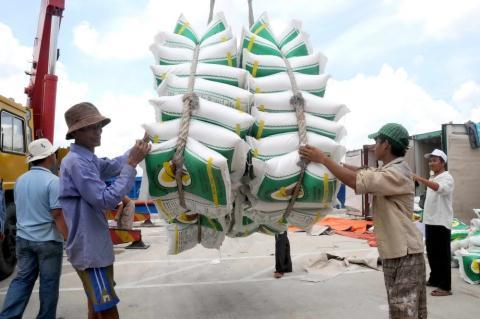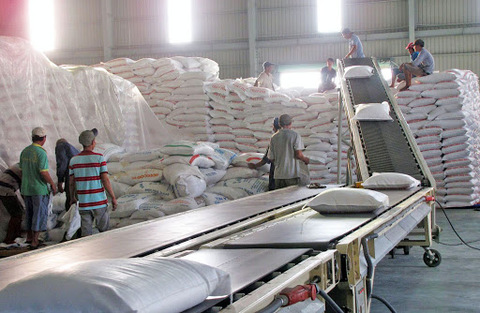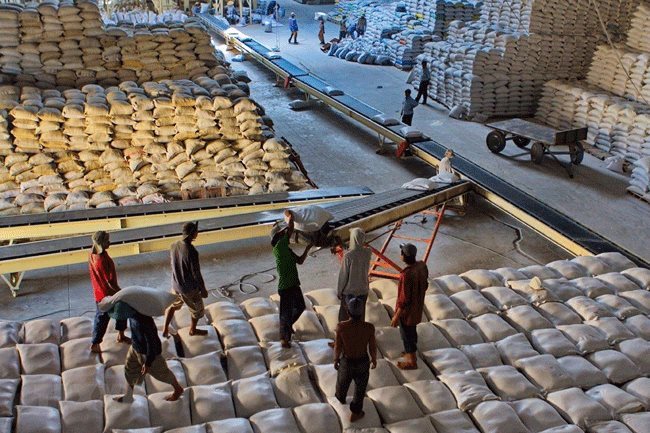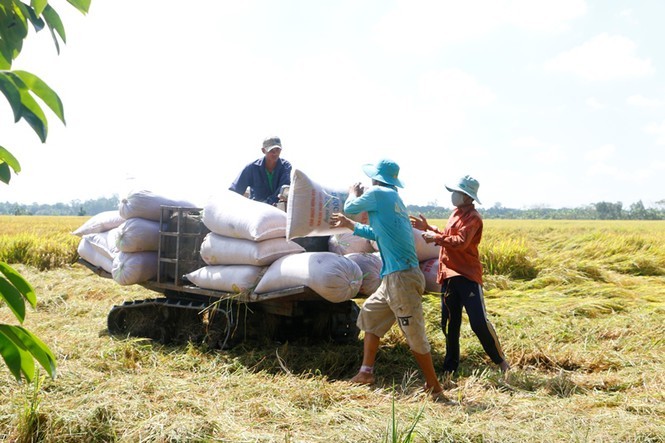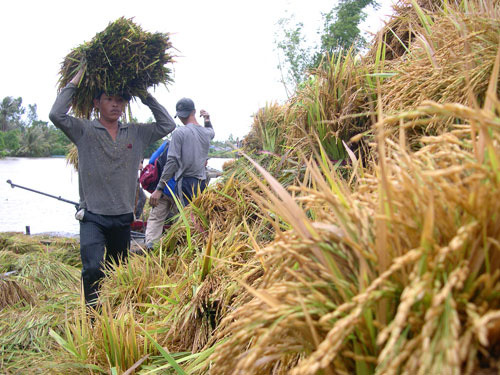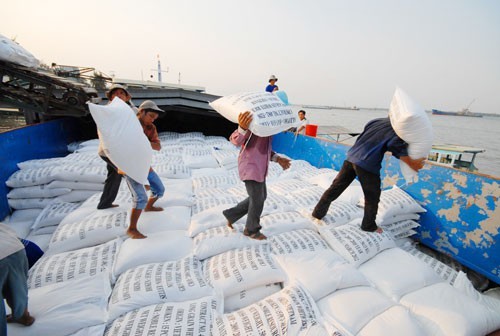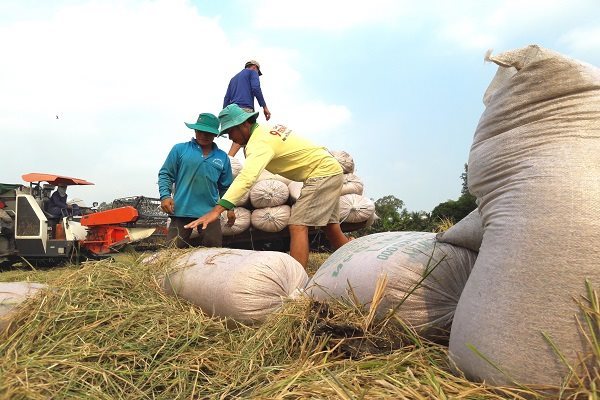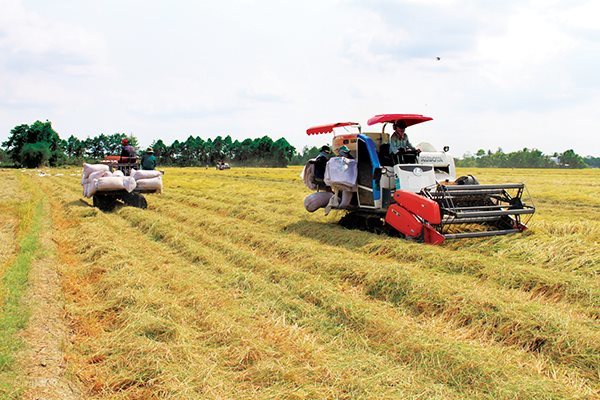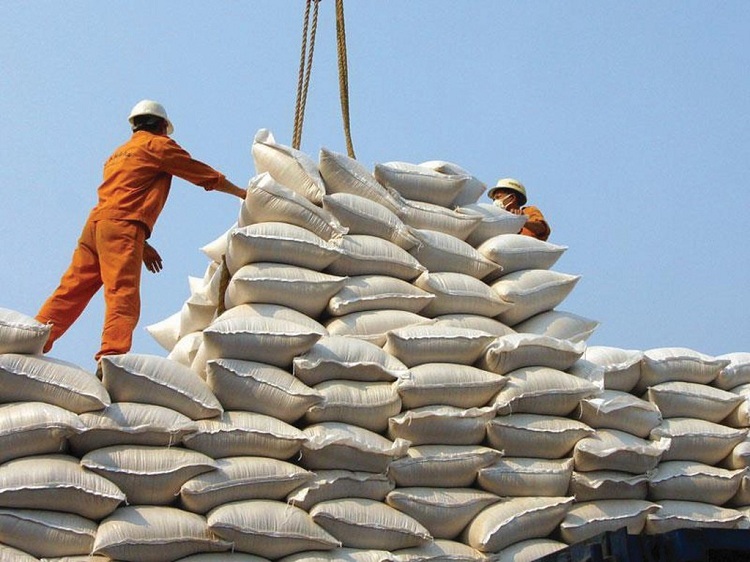- © Copyright of Vietnamnet Global.
- Tel: 024 3772 7988 Fax: (024) 37722734
- Email: evnn@vietnamnet.vn
rice export
Update news rice export
Rice products remains bright star among VN's farm export items
 While most farm export items met with difficulties in the first months of the year, rice exports unexpectedly soared as the world increased its reserves.
While most farm export items met with difficulties in the first months of the year, rice exports unexpectedly soared as the world increased its reserves.
Rosy signs show bright prospect for rice export
 Vietnam is enjoying strong growth in both rice export volume and value, and more export chances are still ahead as some FTAs have come into force and consumers around the globe are boosting purchase to ensure food security.
Vietnam is enjoying strong growth in both rice export volume and value, and more export chances are still ahead as some FTAs have come into force and consumers around the globe are boosting purchase to ensure food security.
Vietnam enhances rice, pork price stabilisation
 The Ministry of Industry and Trade has asked rice traders to strictly maintain a reserve equivalent to at least five percent of their export volume in the six most recent months.
The Ministry of Industry and Trade has asked rice traders to strictly maintain a reserve equivalent to at least five percent of their export volume in the six most recent months.
Vietnam overtakes Thailand in rice exports
 TREA, the association of Thai rice exporters, on February 12 said Thailand may lose its position as the second largest rice exporter when setting up the goal of exporting 7.5 million tons this year, a 7-year low.
TREA, the association of Thai rice exporters, on February 12 said Thailand may lose its position as the second largest rice exporter when setting up the goal of exporting 7.5 million tons this year, a 7-year low.
Vietnam needs to find new rice markets to replace China: experts
 Since the novel coronavirus (Covid-2019) epidemic will surely affect exports to China, diversifying markets is an urgent requirement for Vietnamese rice exporters, experts have said.
Since the novel coronavirus (Covid-2019) epidemic will surely affect exports to China, diversifying markets is an urgent requirement for Vietnamese rice exporters, experts have said.
S.Korea says to import 55,000 tons of rice from Vietnam
 South Korea has opened up its market to Vietnamese rice, setting the annual import quota of Vietnamese rice at 55,112 tons, according to the Import-Export Department at the Ministry of Industry and Trade.
South Korea has opened up its market to Vietnamese rice, setting the annual import quota of Vietnamese rice at 55,112 tons, according to the Import-Export Department at the Ministry of Industry and Trade.
182 rice traders certified as eligible for rice exports
 The Ministry of Industry and Trade has granted 47 certificates of eligibility to rice export businesses over the past year, lifting the number of rice exporters to 182 traders.
The Ministry of Industry and Trade has granted 47 certificates of eligibility to rice export businesses over the past year, lifting the number of rice exporters to 182 traders.
Lack of capital, human resources, land impedes rice production
 Vietnam is a major rice producer and exporter in the world, but Vietnamese farmers and companies cannot make fat profits.
Vietnam is a major rice producer and exporter in the world, but Vietnamese farmers and companies cannot make fat profits.
The hard lot of Vietnam’s rice
 Vietnam’s rice export price is always low compared with other countries because consumer confidence in Vietnam’s rice quality is not high, experts say.
Vietnam’s rice export price is always low compared with other countries because consumer confidence in Vietnam’s rice quality is not high, experts say.
Fake world’s best rice products flooding in the market
 Products which claim to feature the ST25 rice strain which was crowned the World's Best Rice at a recent contest have flooded in the Vietnamese market.
Products which claim to feature the ST25 rice strain which was crowned the World's Best Rice at a recent contest have flooded in the Vietnamese market.
Vietnamese rice crowned world’s best title
 Vietnam’s ST24 rice variety was recognised as the World's Best Rice this year.
Vietnam’s ST24 rice variety was recognised as the World's Best Rice this year.
Vietnamese rice 50% cheaper than Thai rice
 Vietnam and Thailand are two major rice exporters to the Hong Kong market, but Vietnamese rice prices are 50% lower than those offered by its rival, leaving wide room for growth for Vietnamese rice exports to the former British territory.
Vietnam and Thailand are two major rice exporters to the Hong Kong market, but Vietnamese rice prices are 50% lower than those offered by its rival, leaving wide room for growth for Vietnamese rice exports to the former British territory.
Vietnam should improve rice quality in long-term strategy
 Experts believe Vietnam needs a long-term strategy to increase the quality of its rice exports to create sustainable growth in the future.
Experts believe Vietnam needs a long-term strategy to increase the quality of its rice exports to create sustainable growth in the future.
Vietnam struggles to reach rice export plan
 Analysts warn that Vietnam will have to struggle to implement the rice export plan this year because many key markets have tightened control over imports.
Analysts warn that Vietnam will have to struggle to implement the rice export plan this year because many key markets have tightened control over imports.
Thai policy on rice subsidy is double-edged sword for Vietnam
 The government of Thailand has approved a budget of 21.5 billion baht to ensure a rice price at a reasonable level for Thai farmers. The policy is expected to have a negative impact on other export countries, including Vietnam.
The government of Thailand has approved a budget of 21.5 billion baht to ensure a rice price at a reasonable level for Thai farmers. The policy is expected to have a negative impact on other export countries, including Vietnam.
Thailand’s rice subsidy program may affect Vietnam: rice operators
 Thailand has passed a plan to allocate its budget of 21.5 billion baht to help stabilize rice prices for Thai farmers. This subsidy program may affect rice exporters including Vietnam, according to local rice operators.
Thailand has passed a plan to allocate its budget of 21.5 billion baht to help stabilize rice prices for Thai farmers. This subsidy program may affect rice exporters including Vietnam, according to local rice operators.
Vietnam’s rice exports to Philippines up, but farmers aren’t happy
 Rice exports to the Philippines have increased sharply as the country has lifted quotas since the beginning of the year. However, Vietnamese farmers have not received big benefits.
Rice exports to the Philippines have increased sharply as the country has lifted quotas since the beginning of the year. However, Vietnamese farmers have not received big benefits.
Vietnamese rice has more opportunities to enter the US
 Several US importers have added rice to the list of product items they will buy from Vietnam.
Several US importers have added rice to the list of product items they will buy from Vietnam.
Vietnamese exports rise, but not because of trade war: economist
 Vietnam’s economy has been better off over the last three years with exports growing rapidly.
Vietnam’s economy has been better off over the last three years with exports growing rapidly.
Vietnam still faces rice export difficulties
 Vietnam's rice export industry is trying to find new customers as exports to China, the country’s biggest customer, dropped.
Vietnam's rice export industry is trying to find new customers as exports to China, the country’s biggest customer, dropped.
